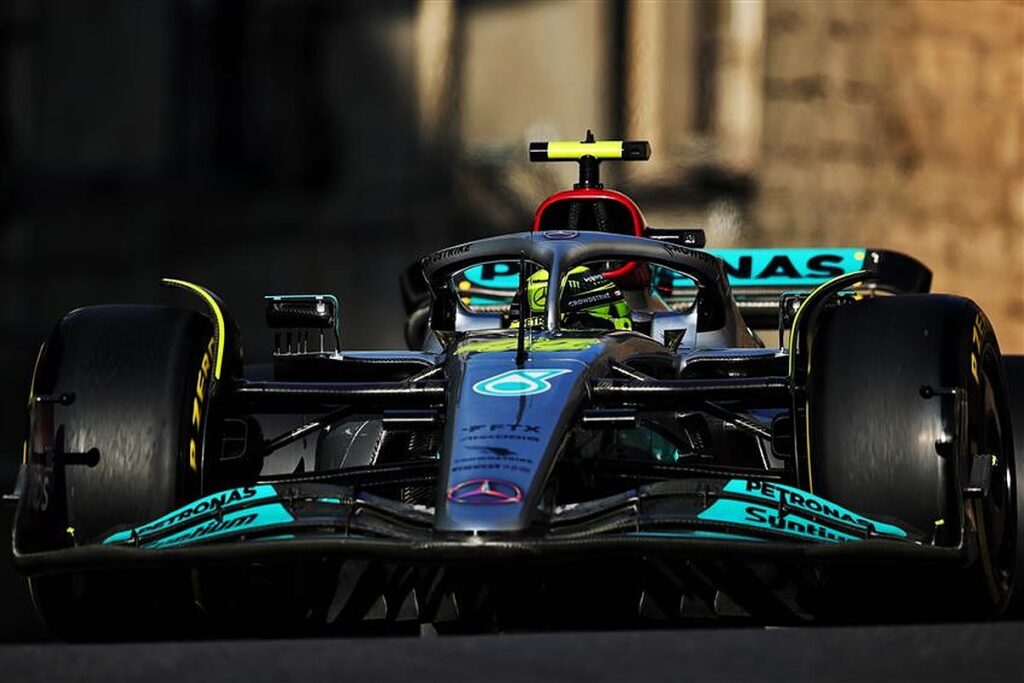Formula 1’s chief technical officer Pat Symonds believes the FIA “overreacted” after the Azerbaijan Grand Prix, when the governing body took swift action after Lewis Hamilton was seen suffering from considerable spinal pain.
The first half of Mercedes’ 2022 season was ridiculed by the porpoising phenomena, with the W13 having bounced along the circuit when travelling at high speeds.
This caused a high level of discomfort for both Hamilton and George Russell, with the likes of AlphaTauri and McLaren having also experienced the bouncing problem.
As annoying as the issue was, nothing could’ve prepared Hamilton of Russell for just how bad the porpoising would be at the Baku City Circuit, where both drivers could be heard in pain on the team radio.

READ: Michael Andretti accuses F1 teams of being ‘greedy’, reveals US sponsor worry
The aggressiveness of the porpoising was a particular issue for the seven-time World Champion, who complained about spinal pain during the race.
The back pain he was suffering from was so severe that he struggled to climb out of his W13 post-race, with his mechanics having been on hand to support the 38-year-old as he attempted to gingerly get out of his cockpit.
Hamilton’s porpoising was so aggressive that he was concerned that his back was going to break, with Pierre Gasly having also explained that the phenomena simply couldn’t continue.
With the issue having been a safety concern, the FIA intervened without the permission of the teams, something they were allowed to do due to their intervention being on “safety grounds”.
To eradicate porpoising short-term, the FIA introduced a new technical directive at the Belgian Grand Prix, which saw the teams have to raise their cars.
Whilst this technical directive was effective, Symonds believes the issue “would have been solved” without the FIA.
“I think they overreacted a bit after Baku,” Symonds told Auto Motor und Sport.
“In Baku, we experienced the worst effects because a team tried something that didn’t work and then went public quite loudly.
READ: Red Bull sign son of Formula 1 legend
“If we had not intervened, the problems would have been solved. Most teams have now understood how to control bouncing.”
Red Bull boss Christian Horner also stated at the time that the FIA’s intervention was “unfair”, as the teams that weren’t suffering from porpoising and had solved the issue were punished for doing a “decent job”.
“It would seem unfair to penalise the ones that have done a decent job, versus the ones that have perhaps missed the target slightly,” Horner said.

